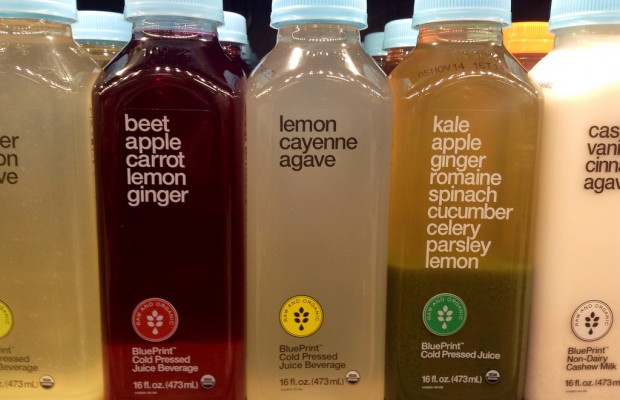Juice cleansing is terrifying

The culture of Juice Cleansing is bizarre. It’s a bubbling syrup of colorful vanity and a fear of defecation.
A juice cleanse is a temporary diet (three to seven days) of cold pressed or unsweetened fresh juice–no Sunny D or Welch’s Grape. An important staple of a cleanse is the lack of claimed impurities: “Pesticides, hormones, antibiotics, preservatives, and various difficult to pronounce chemicals disguised as food” as described by juice supplier Project Juice.
I was originally planning to do a juice cleanse for this article, but the price for doing so was too much for my family or I to support. A juice cleanse consists of six juices per day. However, one bottle of cold pressed or fresh juice, which can be purchased either online or at a juice bar, ranges from $10 to $20. Therefore, one day of cleansing costs about $60, and a three day cleanse (the minimum recommended period) is about $180. For perspective, a bottle of Soylent 2.0 (a vegan, 400 calorie, pre-bottled drink of all necessary nutrients) is $2.69. A day’s worth of nutrition from Soylent 2.0 is $13.45.
Wealth is a necessary component for the juice cleanse culture. There are no juice bars in Newbury Park, one juice bar in Thousand Oaks, two in Camarillo, yet five in Westlake.
And what kind of benefits come from a juice cleanse? The definition of a toxin is vague, and the growing location of the produce is even more so.
Local Westlake juice bar Juice Ranch advertises that its juice is “100% Organic. No Pesticides. No GMO. 90% local. 10% tropical.” So I asked for a list of farms or suppliers Juice Ranch buys from to confirm their claims. Owner and founder Scott Walker responded with a simple, single word answer: “No.”
There’s a term for the negative side effects of a juice cleanse: a healing crisis. “[Your body] breaks down toxins and fat cells and causes a release of poisonous compounds into your bloodstream,” says Project Juice. “Diarrhea, aches or pains, rashes, headaches, and fatigue.” and to “feel irritated, anxious, fearful, angry, depressed or foggy.”
I see the popularity of juice cleansing as the desire to be too clean. On a juice cleanse, the user is meant to stop defecating after initial diarrhea. In fact, Project Juice recommends warm water enemas to help with said healing crisis.
Should the average person do a juice cleanse? Probably not. The health benefits of a cleanse are blurred but the side effects aren’t. Unless you’re an adult actor or a self conscious lover, a juice cleanse is pointless.



